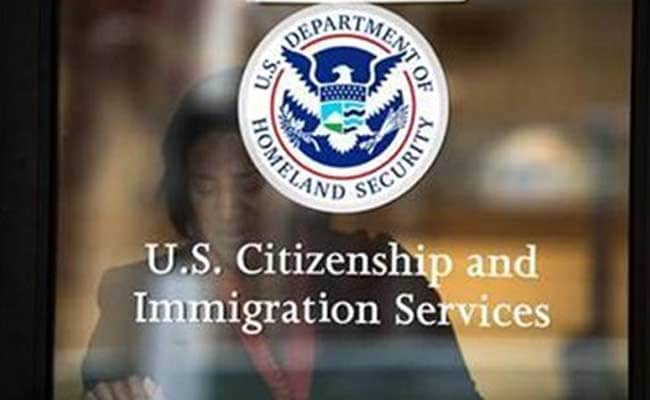[ad_1]

The H1B visa offers several advantages to its holder. (Representational)
New Delhi:
India-American Republican presidential aspirant Vivek Ramaswamy has promised to “gut” the H-1 B visa programme if elected to the office.
Calling it “indentured servitude”, Mr Ramaswamy asserted that the lottery-based system to grant the special visa will be replaced with a more meritocratic process.
Mr Ramaswamy, who himself has used the H-1 visa programme 29 times to hire employees for his former company Roivant Sciences between 2018 and 2023, called the system for “everyone involved”.
“The lottery system needs to be replaced by actual meritocratic admission. It’s a form of indentured servitude that only accrues to the benefit of the company that sponsored an H-1B immigrant. I’ll gut it,” he said in a statement.
What Is H-1B Visa Programme
The H-1B visa, a non-immigrant visa programme, allows US companies to hire foreign workers in specialty occupations, especially those that require theoretical or technical expertise.
The H-1B visa is used by US-based IT companies to hire employees from countries like China and India.
This is not the first time that the H-1B visa programme has come under the spotlight ahead of the US Presidential election.
The visa programme, which has often been at the receiving end of criticism for being a tool to hire cheap labour at the cost of local talent, was sought to be changed by the Donald Trump administration. In June 2020, the Trump administration suspended the H-1B visas along with other types of foreign work visas until the end of 2020 to protect American workers in a crucial election year.
The proposed changes include a rule that will narrow the definition of what constitutes a “speciality occupation”. The rules also required companies to tell the immigration agencies that such employees being hired through H1B visas were not available in the local pool of US workers.
The lottery-based allotment system was set to be replaced with a wage-based system. However, the Trump-era rule was withdrawn in 2021.
Benefits Of H-1B Visa
The H-1B visa, issued for a specific period with the possibility of extension, offers several advantages to its holder. Anyone hired by a US company through the H-1B visa programme has to be paid the same wage rate as other workers with the same experience and qualifications.
It also guarantees the employee working conditions on the same basis and criteria as provided to similarly employed US workers. The employers also have to be paid for the nonproductive time caused by the employers due to lack of license or permit.
For employers, the programme offers greater access to a talent pool from across the globe.
How The Proposed Changes Impact Indians?
Every year, the US administration issues 85,000 H-1 B work permits – which include 65,000 for people with specialty occupations and 20,000 for those foreign workers who have earned a master’s or higher university degree in the US. A large share of these H-1B work permits issued each year goes to Indian residents and the companies.
Indians reportedly made up to 73% of the 4.42 lakh H-1B workers in the 2022 fiscal year.
The proposed changes of making way for a “merit” based allotment system could also mean a drop in the total number of visa applications approved every year. This could crush the dreams of Indians aspiring to work in the US.
[ad_2]
Source link
